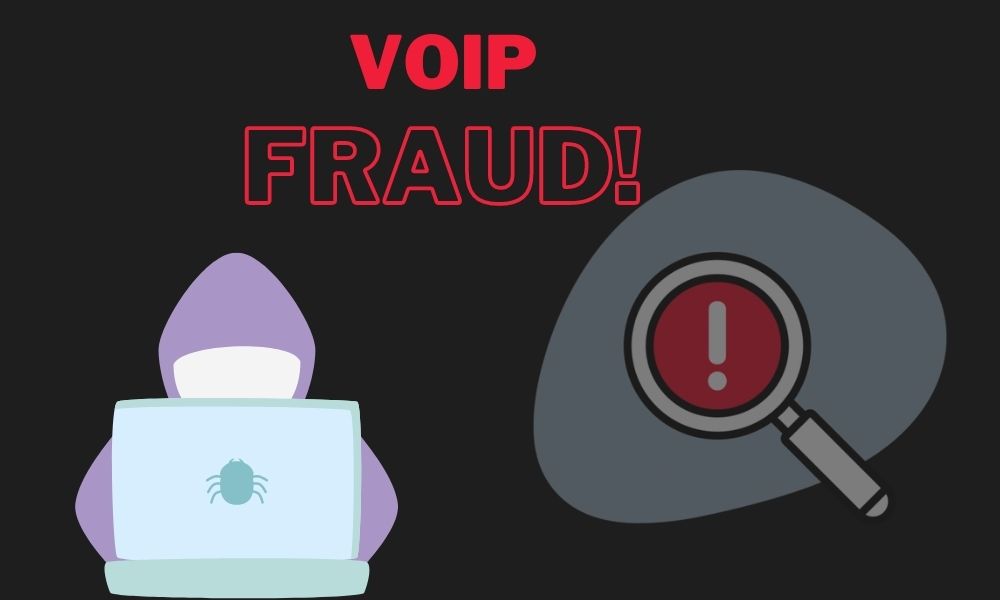The advent of many sophisticated digital technologies has upended the world and changed the way people interact with each other and do business. Many new telecommunications tools have become useful and appropriate, not only for small and large companies, but also for Internet users. Definitely the whole world is changing but as always, everything good has its counterpart.
Great security risks and protection of valuable information come along with this rise of digital technology. In recent times, criminals have found a way to access crucial data for nothing more than illegal monetary gain through cloud communications and Voice over Internet Protocol (VoIP).
VoIP service providers around the world offer phone numbers with any area code, no matter where they are actually located. While this new technology works as an alternative for customers to save money and prevent them from sharing their personal phone number, cybercriminals are taking advantage of it to perform all kinds of scams, such as spoofing phone calls over the Internet, posing as a legitimate company. business, in order to collect personal and financial information.
Since VoIP phone services are not tied to a specific location and have become more accessible and affordable for everyone, the high level of anonymity they provide allows scammers to mask their identities and geographic locations. Without a doubt, the Internet is becoming fertile ground for criminal activity.
How does VoIP work?
A Voice over Internet Protocol service transmits phone calls using high-speed Internet connections instead of traditional landline phone lines. It acts as an intermediary between the caller and the recipient’s device, since calls do not travel directly from one to the other.
Although VoIP is all about saving time, money and resources, it also leads to more cyber attacks. Criminals can conveniently connect VoIP equipment to your computers or smartphones to record calls and steal important and private information from conversations.
Despite the limitless features of this innovative and evolving technology that is transforming the way people communicate, it is currently blocked in many countries due to various criminal activities that have come to the attention of the law. VoIP fraud has become a lucrative illegal business, and as it continues to grow, strategies to defeat this system must become more complex and powerful.
scam types
Here are some typical techniques scammers use to acquire sensitive information and get away with it:
- HOSTED SCAM – Some cybercriminals target a VoIP service provider and attempt to access the network while taking advantage of default passwords and small security measures.
- WHITELISTING SCAM – Attackers find easy access to people’s VoIP service accounts and whitelist their own IP to allow themselves to make calls at their expense.
- REGISTRATION SCAM – Before being able to make calls, some scammers complete packet-based authentication from a VoIP service provider.
The main problem with these types of scams is the difficulty in tracing them, which makes it quite difficult (even impossible) to catch the scammers. The above are just a few examples of fraudulent activities that criminals are constantly inventing to innovate the way they attack. For this reason, it is advisable to learn more about them and be aware of any suspicious activity while using the network.
How to reduce the risk of fraud?
There is no doubt that the popularity of VoIP has increased lately. Businessmen and Internet users all over the world are turning to this virtual telephony to communicate easier and faster, which is why criminals have recently acquired all kinds of VoIP devices as their main tools for illegal activities on the network.
Attacks over VoIP are becoming more sophisticated, making it difficult to differentiate a legitimate call from an attempted robbery. While fraud can happen at any time, many precautions must be taken to protect personal and financial information from cybercriminals.
Following security best practices, monitoring outgoing VoIP calls, and having proper coordination with VoIP service providers are just a few ways to prevent businesses and Internet users from falling prey to cyberattacks.
Is closing VoIP providers a good option?
VoIP services surely make communications easy, convenient and cheap, but like all services that aim to innovate the way people communicate, hackers can target them for really bad purposes.
One might think that removing VoIP is the right way to end this problem, when in fact, it can create a challenge for honest businessmen and Internet users around the world. Your need for such advanced technology increases as it makes your daily activities easier and improves your performance at a much lower cost.
The truth is that not everyone looks for VoIP services to be part of fraudulent activities. Some want to expand their business abroad without traveling abroad, others don’t want to share their phone numbers online, and many just want to use different platforms on the Internet without linking their accounts to their real numbers.
The best way to reduce VoIP fraud is to exploit this industry in the best possible way. Today, a very common use of VoIP telephony is online account verification, which can be done through Non-Fixed VoIP numbers.
More commonly known as Non-VoIP numbers, they are used to verify accounts on all sorts of platforms like Craigslist, LinkedIn, Tinder, Amazon, Gmail, Yahoo, Telegram, Uber, and even Microsoft, with no risk of being blocked as these numbers come from SIM Cards. real.
Epsilon Technology LTD company operates one of the most trusted Non-VoIP number providers called VerifyWithSMS. This service offers USA telephone numbers under the best telephone companies such as Verizon, AT&T, Comcast and Spectrum, at very affordable prices.
With customers from the US and Brazil, the UK and India, VerifyWithSMS has definitely become the pioneer in bypassing account verifications via text messages. It has a variety of payment methods available to everyone, everywhere.
Without a doubt, this service is simple, fast and reliable. Find yourself among the small group of people who seek to do good on the web. Go ahead and sign up today!
Categories: Technology
Source: SCHOOL TRANG DAI



